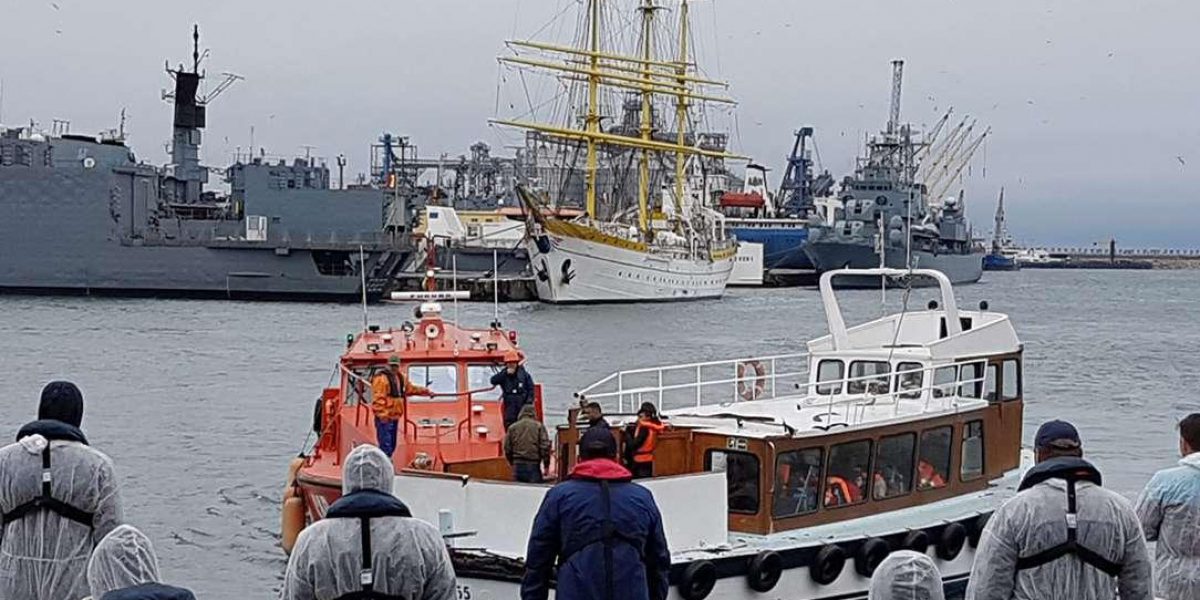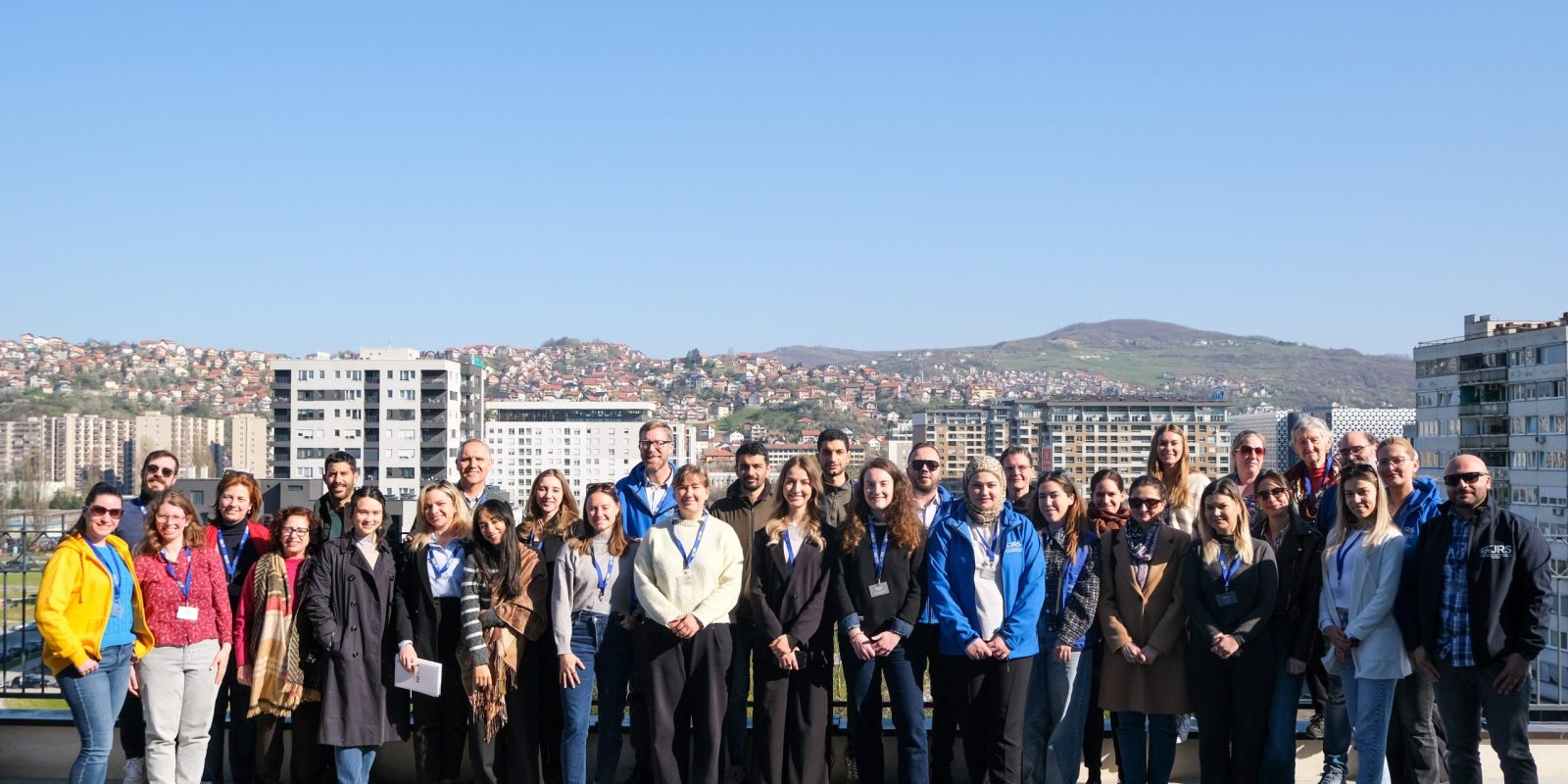
PEB PROJECT: Bucharest, 15 January 2018 – Virtually any conversation about migration to the EU will touch on the Mediterranean Sea, home to the unmarked watery graves of thousands of people who have perished over recent years. But at Europe’s eastern border there is another body of water as perilous as any other.
In this month’s Protection at External Borders (PEB) article, we describe journeys taken by migrants and their families across the Black Sea to Romania. Compared with Italy, Malta, or Spain, fewer migrants have reached Romania by the ‘inhospitable sea’, as it was called in ancient times. Yet the numbers are growing, showing just how desperate people fleeing from war are to reach a place of safety for themselves and their families.
Surviving the Inhospitable Sea
Bazan, a 37-year-old man from Iraqi Kurdistan, married, with two children, learned about the possibility to cross the Black Sea only when he and his family arrived to Turkey. “I had already paid a lot of money to go to Europe. In Turkey, I found out about a boat, and we took the risk. We did not want to go back,” he told JRS.
A violent storm made the journey especially dangerous. “We thought that we would not survive,” Bazan said. Eventually, the Romanian authorities spotted the boat and rescued everyone onboard. “We were too many people on the boat. Most of us were Kurdish.”
Many migrants have taken the sea journey from Turkey to Romania without knowing the geography very well, thinking they were going to Greece or Italy. Erez, an 18-year-old also from Iraqi Kurdistan, experienced this in a journey with dozens of other Iraqis and Iranians.
“We left from Turkey and were told that we should go to Greece or Italy. We spent one day and two nights on the boat. The boat was filled with women and children.” Only when Erez and the others were rescued did they realize that they had reached Romania. “The police told us, ‘our country is not good for you, we have no money to take care of you,’” he recalled.
Another 25-year-old Iraqi Kurd described a more frightening situation. “We were escorted ashore by a police boat. When we were close to shore, we jumped into the water. We were all very afraid. They were shouting at us. Some thought that the boat was sinking.”
Unclear Procedures and Children in Detention
Migrants who have taken the Black Sea route have mostly avoided the horrific tragedies that have imperiled thousands in the Mediterranean Sea.
The joy and relief of arriving on dry land, is soon replaced by fear and confusion. Procedures are slow, and help is sparse. Migrants overwhelmingly describe being deeply confused about everything happening to them, from the sea journey, to disembarkation, and processing by the authorities.
“They saved our lives at sea, but then they accused us of illegal entry,” said Bazan. “We protested and told them that all we want is to remain free and not to be sent back to our home country, because of ISIS, the war, and instability. There were no Kurdish interpreters. We stayed in a very bad space in the police station. Then, we were split up without any explanation: some were taken to an open reception centre, others were detained, some families were accommodated in a hotel. It is not clear how we were distributed.”
Bazan spoke with JRS Romania from Otopeni detention centre, located next to the airport 10km north of Bucharest. He applied for asylum but was rejected, for reasons that are unclear to him. Meanwhile, he and his family were languishing in detention without knowing what will happen. Many children have been detained with their parents, leading to serious concerns about safeguarding their best interests and well-being.
“I arrived to Europe with a lot of hopes. After one month, I realized that I made a big mistake. Why should my children be placed in detention? Is it because of my decisions? Most probably. Only God knows.”
JRS Romania policy officer, Stefan Leonescu, is saddened that Bazan feels this way.
“Bazan should not blame himself. Nobody would undertake such a risky sea crossing unless they were in real danger. No, it is the Romanian authorities that need to take responsibility and treat forced migrants with more dignity and respect. Reception conditions and asylum procedures need to be improved. And of course, putting children into detention is completely unacceptable. JRS Romania will continue to advocate for improvement in these areas.”
No Routes, Just ‘Singular Incidents’
Between July 2013 and February 2015, the Romanian authorities picked up around 500 migrants who arrived on medium-sized fishing boats from Turkey across the Black Sea in nine recorded incidents.
Yet in 2017, the authorities detected nearly 540 migrants in six separate incidents. During the month of August-September alone, 475 people came ashore via the Black Sea; another 66 came in November. The EU border agency, Frontex, is reluctant to say that a new migratory route has opened. But they do acknowledge that tougher border practices elsewhere in Europe have encouraged smugglers to test out new routes.
“More people are coming to Romania via the Black Sea. In 2017, more than 200 were children,” says Leonescu.
According to Leonescu, the Romanian authorities may be reluctant to label the pathway as a new migratory route because they do not want to encourage more migrants to come. “In 2017, Romania registered 4,700 asylum applications, more than any time since 1991. The authorities do not want to do anything that would attract more migrants. To them, there is no Black Sea route, only singular incidents.”

